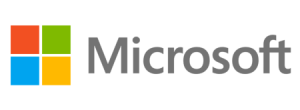It’s been easy to think that the FOSS world has little to worry about from Microsoft these days. By the time Steve Ballmer was forced out a few years back, the company seemed to be a basket case. Windows was becoming less relevant by the minute, many consumers were sparing themselves the expense of Office by adopting LibreOffice and OpenOffice and efforts to launch Windows Phone were going nowhere, even after Steven Elop drove Nokia to the brink of bankruptcy, allowing Redmond to purchase the Finnish company’s once unstoppable phone business at fire sale prices.
 Although some have been trying to sound the alarm, many of us have been lulled into complacency brought by a belief that Microsoft is no longer a real threat and that we are now free to concentrate all of our energies on growing Linux and FOSS, which is basically all we’ve wanted to do.
Although some have been trying to sound the alarm, many of us have been lulled into complacency brought by a belief that Microsoft is no longer a real threat and that we are now free to concentrate all of our energies on growing Linux and FOSS, which is basically all we’ve wanted to do.
The trouble is that the fat lady has not yet sung.
Our problems with Microsoft are not yet over. For sure, Windows isn’t the monopoly it once was, but it’s still a monopoly. And while MS Office installations have been shrinking for several years, the cloud version, Office 365, has been doing quite well, thank you, and is poised to do even better under Windows 10, which seeks to be a Chromebook on steroids.
There’s more.
While many of us have been busy ridiculing Redmond for its “we love Linux” claims, Satya Nadella and his team might be quietly engineering a sneak attack, hoping we won’t know what hit us until it’s too late.
On Saturday, Matt Weinberger published a piece in Business Insider in which he opines that Nadella’s Microsoft is working to “swap one monopoly for another.” The new monopoly, according to Weinberger’s thinking, would be Office, and he cites Redmond’s efforts to make the online version of the productivity suite accessible on Android and iOS devices.
“Office workers and students both rely on Microsoft Word, Excel, PowerPoint, and the rest of the suite. Google Apps (recently rebranded Google for Work) is providing some solid competition, particularly in smaller businesses and tech startups, but almost every big business in the world still has thousands of Office licenses.
“Rather than force Windows on users to make them use Office, Microsoft’s new game plan is to make Office irresistible to anybody, no matter what device they’re using.”
Microsoft has learned its lesson, he says. They’re prepared to take on any new device that comes along. The minute Firefox OS begins to gain traction, Office will be there with an app. Ditto if Shuttleworth’s dream of a commercially viable Ubuntu Phone is realized.
“If the iPhone bubble ever bursts, and we move to getting chips implanted in our heads, you’d better believe Nadella will task a team to getting Microsoft Word running on our corpus callosum.”
None of this would be too worrisome if not for a software suite that Microsoft has been quietly pushing on its enterprise customers, a product that looks to be every inch a Trojan Horse designed to eventually garner dominance for Windows Phone and to keep enterprise customers from moving away from Windows on their workstations.
The suite is a cloud based subscription service called Microsoft Enterprise Mobility, and it’s the type of service Windows based IT departments are sure to adopt. The service basically allows a company’s IT guys and gals to manage both the PCs and mobile devices on the company’s network. Kevin Turner, Microsoft’s COO, has great plans for it, claiming it’ll be Redmond’s next billion dollar business.
At first glance, it doesn’t look to be very threatening.
According to Microsoft, it will “Keep your employees productive on their favorite apps and devices — and your company data protected.” It helps a company manage and protect all mobile devices, no matter what platform they’re running. It includes Azure Active Directory Premium, which helps a company’s employees manages most, if not all, of their passwords, and Azure Rights Management, which password protects Office documents.
It seems harmless enough, especially when considering that many of the services included were until recently already available as Windows apps. But now its in the cloud, doesn’t require Windows to run and will help manage all devices, regardless of operating system.
Make no mistake: the Microsoft Enterprise Mobility Suite is potentially dangerous, not because of what it can do now, but because of what it very well might be able to do in the future, after it’s use becomes ubiquitous in the enterprise, which is likely as this is the sort of thing that Microsoft IT departments love to deploy.
It’s not hard to imagine that after the Mobility Suite becomes an indispensable part of many IT departments, we’ll hear from Microsoft that while the suite can do an excellent job of protecting all devices regardless of operating system, due to built in integration it can do an even better job of protecting company data on devices running Windows — perhaps even with added functions — by utilizing hidden APIs built into Windows.
This would help solidify Microsoft’s hold on enterprise workstations. It would also cause many security cautious IT departments to encourage their employees to move away from Android, iOS and other mobile platforms in favor of Windows Phone. This is all conjecture, of course, but it’s not unlike tricks Microsoft has used in the past.
It also won’t be successful, as long as open source companies keep a wary eye on Redmond’s activities while developing open source “mobility suites” that are more effective and less expensive than Redmond’s offering. I’m sure Red Hat is up to the challenge, as are others.
Help keep FOSS Force strong. If you like this article, become a subscriber.
Christine Hall has been a journalist since 1971. In 2001, she began writing a weekly consumer computer column and started covering Linux and FOSS in 2002 after making the switch to GNU/Linux. Follow her on Twitter: @BrideOfLinux








until free foss dumps its corporate masters,
Red Hat, Canonical, Suse, Oracle, IBM, Google, etc.,
it will never beat Microsoft. FOSS needs to fix its own house,
the stench is ever growing.
Richard, you have piqued my interest.
So with all of the above-mentioned corporate masters swept away. Just what or who is left to “beat Microsoft”? What remaining entity can do battle with Redmond?
Be it GNU/Linux, Google’s Chrome, Android; Microsoft has been pissing and injecting code (Mono, Moonlight, etc.) at other platforms trying to inhibit their success.
How can a software company that can’t even fix the pig that Windows 10 is claim to have a better product in it’s offering. They can’t even manage to program a decent boot manager; something that GNU/Linux did a long time ago. Copy FOSS and maybe you can call it MS GRUBBER. Microsoft knows how to copy others; it did it with its latest epiphany and named it “compressed RAM” which has been a staple of GNU/Linux years ago. Fix that Trojan, Spy-Malware with a GUI it calls an OS.
My point really relates to how Linux has spread so rapidly in the past 15 years – the corporate money, but many of these same companies work with MS on projects or on technology sharing.
Systemd, pulseaudio, and pam are all RH creations, but all of Linux uses it, why?
These days, even Linux forum sites follow all sorts of corporate
guidelines over politically correct speech, thats rather amazing given Torvalds well documented diatribes. Two years ago I was banned on Opensuse forums for my colorful language to our now dear departed poster on Opensuse, DenverD. Its a lifetime ban actually, but I ressurected myself under the moniker bsduser and I only say a fourth of what I think. Yesterday on Ubuntu I joked about the Munich Linux embarrassment referring to the eunuchs of Munich – that one comment nearly got me banned on Ubuntu forums, and they actually deleted it and sent me private warnings. I guess Shuttleworth is a prude? Are millenials obcessed with political correctness? Newsflash : Torvalds calls people so dumb that they should have been aborted, but under Canonical’s rules no user jokes allowed.
My point is FOSS is an illusion, money is corrupting the ideals of folks like Stallman. Checkout the OpenBSD lists, no political correctness there.
The original purpose of Linux was to be a “free” Minix, not an anti-windows, thus I don’t get the Linux-users battle with MS. What is the purpose of your fight? YOU WON! SUN is gone! HP-UX, AIX, SCO, are all dead, or severely wounded. You have also unintentionally weakened your older cousin, the *BSD’s. The GPL is supposedly about software freedom; well if you truly believe that, then you should be asking hard questions of the linux foundation, because I see this as a convenient tax free haven for Red Hat. Where the hell is your left-wing out rage? Seriously.
Richard makes some good points.
FOSS fundamentally needs to be about freedom. If you think Red Hat, Google, Canonical, Oracle, or any big company cares about that, you are deluding yourself.
Having companies invest in FOSS is useful, but it must be tempered. They must not be allowed to control it, or subvert FOSS with shiny proprietary garbage just because they contribute (I’m looking at you Google). Red Hat may avoid Google’s overt proprietary plays, but they know a thing or two about control of FOSS through sheer velocity of code changes, i.e. keep it big, complex, and changing so rapidly that you become the de facto owner (See: systemd).
You know Richard I never thought about it that way. I was recently reading articles about systemd and now the things people are against makes more sense. Didn’t openBSD received money for Microsoft for the project OpenSSH, if I’m not mistaken.
Sometimes I think of going back to Microsoft. I was very productive then. At least I know where they stand. They are there to make money!
Yes, MS gave The OpenBSD Foundation, and big……..drum roll……..
$25,000! yes folks, $25,000 for OpenSSH, something which MS wants to add into their powershell. Torvalds probably makes that much every month. I know that in 2012 he collected 500,000 euros for a technology prize. I don’t begrudge him though, he’s a remarkable guy and someone who has forever changed the 21st century, out of his bedroom, of all places, after school. It’s living proof – believe in your idea, and maybe it will come true.
maybe we should all stop whining and get a mobile version of libreoffice going allready…..its something alot of people have wanted and we have not delivered on. I cant stand MS but they are just responding to market demands on this one.
I still love Linux Mint or Linux in general.
It’s very true that if you want to work with a tablet having Android or Windows, we have no choice but to use Google docs or Office apps. LibreOffice mobile version would be a big welcome.
@Mac Taylor
“How can a software company that can’t even fix the pig that Windows 10 is claim to have a better product in it’s offering.”
They don’t need to fix anything, as long as they can get enough people using what they currently offer. This Enterprise Mobility is one example of how they intend to do that.
I have a question. I mean, I love FOSS and despise Microsoft as much as the next guy. But what in the hell is with the demonization of making money?
(By the way, this is not intended for the author of the piece, but by the strident weirdos who excoriate “left-wing outrage” and replace it with what appears to be “right-wing populism”)
If companies (who – shock! – need profit to remain a source of jobs and to continue existing) can contribute usefully to FOSS, why look down your nose at them? I don’t get this mentality.
Nothing wrong with making money. This is how the world goes round.
@tracyanne
I know not fixing or doing anything is par for that corporation and that is an attitude which will bite you in the butt more than not. Most people in IT have long memories of things going bad than good.
I do most of my work supporting multi-layer switches, SANs/NAS, datacenters and attend many meetings with heads of IT dept. One thing never fails, at each and every meeting, someone always brings up the topic of; “How can we easily, transparently, and without major ripples migrate our user-based systems(desktop) out from the MS ecosystem?”.
Most of the servers are Linux/UNIX and the few Win servers run in virtual environments. Authentication to the corporate network is thru LDAP/Kerboros, etc; Not thru AD. so Enterprise Mobility is not going to be a dog in this fight.
It’s the desktop users that we listen to and do not want to move from their XPs or Win7 machines. Their major complaint was Vista, Win8, and the ones who have tried Win10 on their personal computers definitely hate it.
So, immutability is not a good stance to take. Better to, “Let he who has and ear listen” and watch what people like Clem of Linux Mint and others do to garner success. We listen to our coworkers and it’s better to have a one productive individual than 10 solitaire users; Else, don’t listen or change and watch your future spiral down to irrelevancy.
Richard says: “The original purpose of Linux was to be a “free” Minix, not an anti-windows, thus I don’t get the Linux-users battle with MS.”
You have that backwards. Linux and its users were not initially anti-MS. It was only after being attacked by Microsoft that users became distrusting of the company. Most users and developers simply wanted to use the OS and do their thing in an open marketplace. Something Microsoft could not tolerate despite their claim of Linux usage being under 1%.
I agree that MS created the mistrust, but DRM cracking by Linux users did not help.
Microsoft right now with all it’s we love linux now — scares me.
Richard says: “I agree that MS created the mistrust, but DRM cracking by Linux users did not help.”
That has absolutely nothing to do with it.
DRM cracking?
You mean using our computers as we see fit, instead of allowing ourselves to be virtual prisoners of insane corporate interests? Ok, then.
@Timon19
> “If companies (who – shock! – need profit to remain a source of jobs and to continue existing) can contribute usefully to FOSS, why look down your nose at them? I don’t get this mentality”
I disagree with this characterization. You can’t look down on corporation like it was a person. Companies are not people. They are groups of people but they are also bureaucracies created for the sole purpose of profit, and bureaucracies always have a life and momentum of their own. Pursuit of profit isn’t inherently bad, but blind pursuit of it is, and that all too often is the case.
While companies can and do contribute to FOSS, the attraction of making money leads them to make compromises that are not in the interests of individuals using FOSS. It is that simple. There needs to be a force to push back against unbridled corporatism to ensure that the F in FOSS continues to be relevant.
Mike,
Here’s an idea: don’t patronize companies who do things you dislike.
A corporation is indeed a group of people. As such, it does not have individual agency, nor any moral requirements. That’s NOT to say they should (or can) act immorally. They are amoral. Thus, their only purpose is to continue to exist, which requires taking in more money than goes out.
In a different sense, their pursuit of profit is their most moral (to its employees, investors, etc.) pursuit and ONLY moral pursuit. A company that does not seek to continue to exist by making money does a tremendous disservice to a whole range of stakeholders (suppliers, employees, customers, etc.). Anything destructive of that end is arguably to all those constituencies’ detriment, which is, usually, a Very Bad Thing.
@Timon19
>”Here’s an idea: don’t patronize companies who do things you dislike.”
I don’t.
But anyone can contribute to FOSS, even companies I don’t like. That’s kind of the point. Therefore it remains important that those companies not be allowed to steer FOSS toward an end that does not respect the freedom of individuals. This requires different levels and types of vigiliance in each case, as there are many ways to subtly pervert software behavior in ways that are not in the interest of the people using it, but rather in the interest of those writing it.